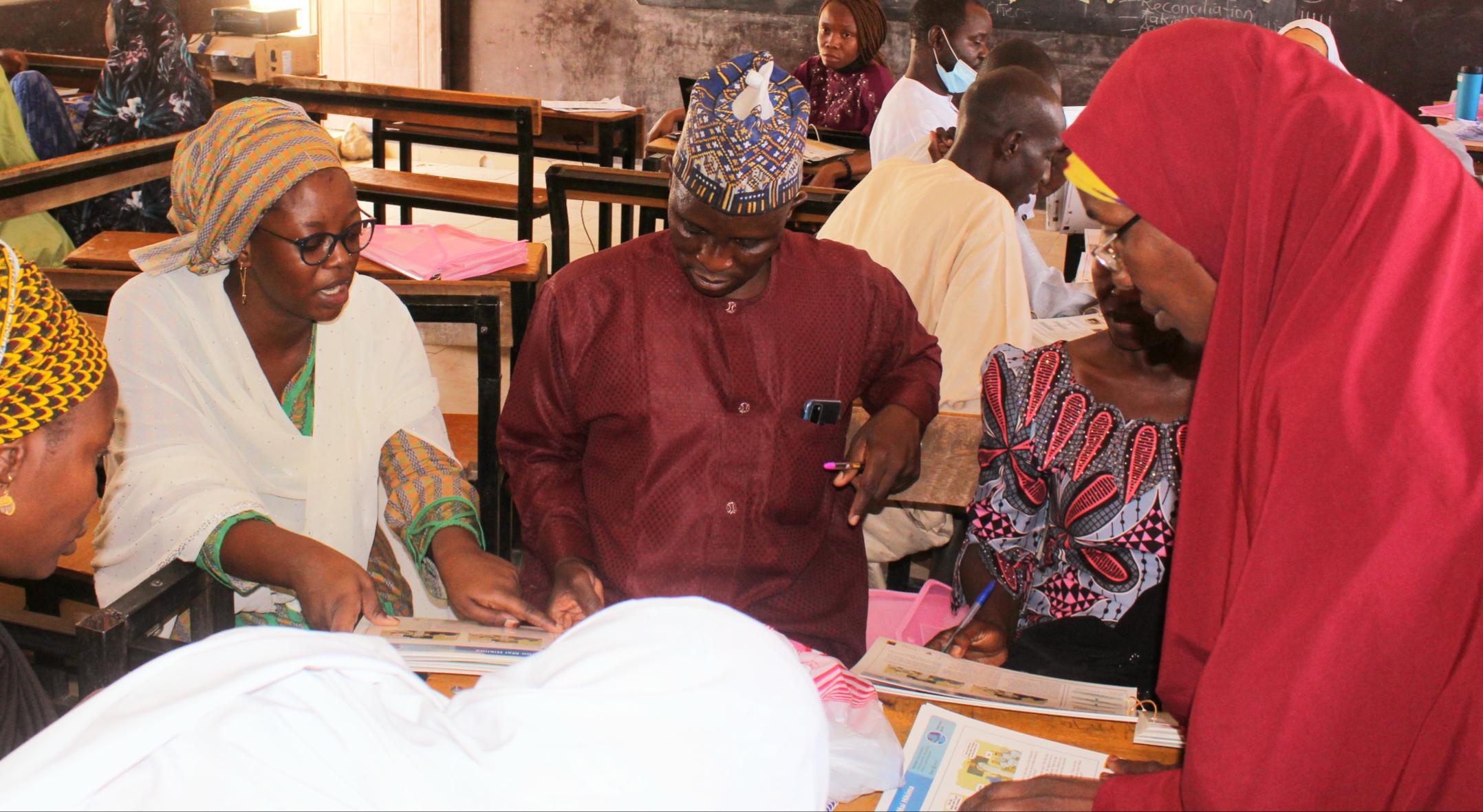
Social-Emotional Learning Kernels in Northeast Nigeria: Contextualization, Implementation Research, and Impact Research
The project is led by the International Rescue Committee (IRC) and the EASEL Lab at Harvard University, in partnership with Nigerian educators and government officials in Borno and Yobe states. The overall purpose of the project is to improve learning outcomes for students in Northeast Nigeria. The contextualization and implementation research phases of the project are complete.
The project is led by the International Rescue Committee (IRC) and the EASEL Lab at Harvard University, in partnership with Nigerian educators and government officials in Borno and Yobe states. The overall purpose of the project is to improve learning outcomes for students in Northeast Nigeria. The contextualization and implementation research phases of the project are complete.
Why Social Emotional Learning (SEL)?
Social emotional learning (SEL) includes knowledge and skills that enable students to focus attention, demonstrate self-control, resolve conflicts peacefully, understand feelings, and get along with peers. Social and emotional skills are important for success in school and life (Jones, McGarrah, & Kahn, 2019). Research indicates that high-quality SEL programs in school can lead to higher grades, better mental health outcomes, and improved wellbeing for both students and teachers (Durlak et al, 2011; Oliveira et al, 2021). SEL programs can also protect children from some of the negative effects of toxic stress, by helping teachers create a safe and supportive learning environment, and by teaching specific skills and strategies that help children process emotions in healthy ways and build positive relationships (Jones & Kahn, 2017).
Contextualization Phase
During the contextualization phase, we partnered with Nigerian stakeholders to create a set of SEL activities that meet the needs of local teachers and students and are rooted in local culture. We started with “SEL Kernels of Practice,” a set of evidence-based strategies developed by the EASEL Lab at Harvard University (Jones, Bailey, Brush, & Kahn, 2017). SEL Kernels are a low-cost and targeted approach to SEL. They are designed to be easy to use and easily adapted for different student, classroom, and community needs.
Between December 2019 and January 2021, we conducted landscape research to identify local values, priorities and practices, and design research to prototype and field test a set of Kernels specific to the NE Nigeria context – called “Dabaru” in Hausa (Bailey, et al, 2021). Working with local educators, families, and state education officials at SUBEB and SAME, we identified local needs and priorities, sourced local activities already in use to promote SEL in NE Nigeria, and identified potential barriers to implementation. Using human centered design and behavioral science, we prototyped the activities and revised the content, design, and format to ensure they would be easy to use. Teachers tried out SEL activities in design workshops and in their classrooms and provided feedback to make them more relevant, engaging, and useful. We collaborated with graphic designers and illustrators in NE Nigeria to create materials that reflect the local language, culture, and classroom-based needs.
Implementation Study Phase
During the implementation research phase, we conducted a study to pilot the adapted kernels (Dabaru) among a diverse sample of teachers in Borno and Yobe states. The goal of the study was to examine feasibility, generate evidence of user demand in NE Nigeria, and to explore whether Dabaru can be implemented with high levels of quality and fidelity by teachers.
Implementation Study Research Questions
- How often and how much time do teachers spend on Dabaru?
- Are teachers able to implement Dabaru with high quality and fidelity?
- Are teachers motivated to use Dabaru in their classrooms?
- Are students engaged in the Dabaru activities?
- Are Dabaru relevant to teachers’ education goals?
- Can teachers fit Dabaru into their regular teaching schedule?
- How do Dabaru benefit teaching and learning?
- What is the cost of designing and implementing Dabaru?
Main Findings
- Teachers used Dabaru often and consistently throughout the study period
- Teachers implemented Dabaru with high levels of quality and fidelity
- Teachers reported that Dabaru are useful and aligned with their teaching goals
- Teachers are motivated to use Dabaru and students are engaged in the activities
- Teachers show improvements in their confidence and self-reported ability to teach SEL after using Dabaru
- Teachers perceive Dabaru as having a positive impact on students and leading to increased positive social interactions, engagement with learning, and wellbeing
- Dabaru are a cost-efficient and potentially costeffective solution to promote SEL in Northeast Nigeria
Publications
- Education Scenario Analysis - SEL Kernels
- Findings from a Pilot Study of SEL Kernels in Northeast Nigeria
- Innovations in Social and Emotional Learning Research and Practice: Building from Evidence and Applying Behavioral Insights to the Design of a Social and Emotional Learning Intervention in Northeast Nigeria